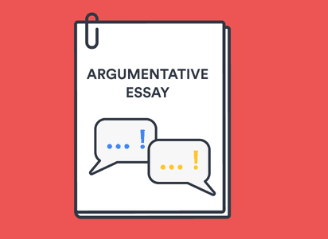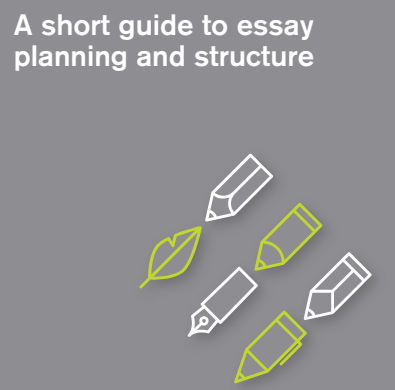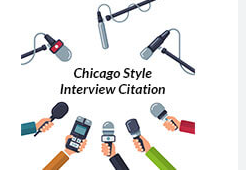Taboo words: Usage in academic writing

Several words and phrases are considered acceptable in everyday informal conversations but are not acceptable in academic writing like a thesis paper or a dissertation.
In academic terms, these words are classified as taboo words, and due to their vague, informal or subjective nature, such words and phrases should be avoided in academic writing.
However, it is important to remember such restrictions do not apply when quoting from a direct source.
Too informal
When it comes to academic writing, the text is more formal when compared to other sources like websites and blogs. Academic writing is generally more formal than everyday conversation. Here is a list of words that are considered informal to be used in academic writing.
|
Taboo words |
Example |
Substitute |
|
A bit |
It was a bit hard to find the house. |
The house was difficult to find. |
|
A lot of, a couple of |
A lot of classes to attend |
(Several/Many/Ten) classes to attend |
|
America |
A scientist from America |
A scientist from the (United States of America/US) |
|
Contradictions like Can’t, won’t, isn’t |
The recipe isn’t perfect |
The recipe is not perfect |
|
Sort of, kind of |
It was kind of cold outside |
It is significantly/somewhat cold outside |
|
Till, till |
From 2018 till present |
From 2018 (until/to) present |
|
You, your as in the second person |
You can clearly understand the benefits |
One can clearly understand the benefits The benefits can be clearly understood |
The beginning of an informal sentence
Some words can be considered acceptable in certain contexts, but when used at the beginning of a sentence, they become too informal. Appropriate transitions words can be used to replace such words at the beginning of the sentence or completely remove them.
|
Taboo words |
Example |
Substitute |
|
Also |
Also, the opposition was in favour of abolishing the draconian laws. |
Furthermore/Moreover, the opposition was in favour of abolishing the draconian laws. |
|
So |
So, it can be concluded that the current highways need proper maintenance. |
(Therefore) it can be concluded that the current highways need proper maintenance. |
|
And |
And most of the offences were against minors. |
Most of the offences were against minors. |
|
Besides |
Besides, every participant signed an agreement before the trial. |
Additionally, every participant signed an agreement before the trial. |
Too unsophisticated
Your writing can feel rudimentary and immature if you are constantly using simple and basic terms. Try to avoid overusing such simple terms if you want to improve your writing. The good idea is to substitute such unsophisticated words with their alternatives.
That being said, some of these words do find their place in academic texts. For example, usage in instances like “this red line shows the zone of conflict” or “This map gives the exact location of the treasure” is perfectly fine. However, while it is also true, long and complex words do not enhance your writing. A good academic text should be concise and to the point and uses varied language
|
Taboo words |
Example |
Substitute |
|
Bad |
The weather was bad. |
The weather was unpleasant. |
|
Big |
A Big storm |
A (large/sizable) storm |
|
Get |
This website gets good traffic. |
This website receives good traffic |
|
Give |
This ending gives the reader a clue. |
This ending (offers/presents) the reader a clue. |
|
Good |
A good story |
A (useful/informative) story. |
|
Show |
The diagram below shows |
The diagram below (illustrates/describes) |
Too vague
Using words that are too vague can result in your writing being imprecise and might skew the readers’ interpretation. Therefore, it is essential to be as specific as possible.
|
Taboo words |
Example |
Substitute |
|
Stuff |
I have to deal with my own stuff. |
I have to deal with my own (belongings/problems) |
|
Thing |
Many things are filed in the report. |
Many (evidence/details) are filed in the report. |
|
A long time, while |
This treasure has fascinated explorers for a long time. |
This treasure has fascinated explorers for over three decades. |
Too exaggerated
Academic writing should be direct and without any exaggeration. Unfortunately, adverbs like frequency (never, always etc.), superlatives (best, worst etc.) and intensifiers (very, too etc.) can reflect much exaggeration. Though such words are often misinterpreted, they sometimes might add value. But use them wisely and cautiously.
|
Taboo words |
Example |
Substitute |
|
Always, never |
Economists always argue on |
Economists (frequently/typically) argue on |
|
Best, worst, perfect, most or other superlatives. |
This is the best solution to combat pollution. |
This is the ideal solution to combat pollution. |
|
Very, too or other intensifiers. |
The rainforests are very important for the survival of the planet. |
The rainforests are critical for the survival of the planet. |
Too subjective
Some taboo words and phrases are subjective and reflect personal bias. For example, if you state that something will happen, you state something obvious and do not mention a fact.
It is acceptable to express your opinion or point of view in certain sections of the academic text based on its types, like a personal statement essay or an argumentative essay. However, in most cases, it is essential to use such words carefully. Use an unbiased approach and let the facts speak for themselves.
|
Taboo words |
Example |
Substitute |
|
Wonderful, beautiful, good, bad etc |
The novel received many good reviews. |
The novel received many positive reviews. |
|
Naturally |
The actors naturally had a good time. |
The actors had a good time. |
|
Of course, obviously, definitely etc. |
The results obviously speak for themselves. |
The results clearly speak for themselves. |
Generally unnecessary
You must try to make your academic writing as concise and direct as possible. Avoid using words and phrases that add no meaning to the text even though it looks good.
|
Taboo words |
Example |
Substitute |
|
Have/has got |
The novel has got eight chapters |
The novel has eight chapters |
|
Helps to/ serves to |
This paragraph serves to add new meaning to the text. |
This paragraph adds new meaning to the text. |
Generally incorrect
Many words are misused, even by native speakers sometimes. If you continuously find such mistakes, you might slowly think that they may even be correct. But you must avoid such mistakes while writing.
Also remember, such mistakes and incorrect words are sometimes related to regular conversations as well. For example, some speakers might say would of instead of would have.
|
Taboo words |
Example |
Substitute |
|
Literally |
The slaves literally dying of hunger. |
The slaves dying of hunger. |
|
Had of, would of |
The experiment would of consisted of |
The experiment would have consisted of |
Other tips
You must avoid using words and phrases that fall in the following categories:
- Jargon: Technical or insider terminologies that the general reader would not be familiar with.
- Clichés: These are overly used expressions like thinking outside the box at the end of the day.
- Abbreviations used in regular conversations: Like photo, fridge, TV etc.
- Slang: Like cool, dope etc
- The gender-biased language: Like seamen, firemen
Exceptions: There are some exceptions when taboo words can be used in academic texts depending on the type of the text. Texts like argumentative essays, personal statements etc., have much less of a formal tone to them. Such texts do not require you to stick to the guidelines strictly. In the case of dissertations, the preface or acknowledgement sections often are less formal and can have a personal tone than the rest of the text.
FAQs of Taboo words
Why should we avoid using taboo words in academic writing?
Academic writing tends to be more formal and concise. Therefore, using taboo words or phrases is not acceptable since they can lower the effectiveness of the text by introducing unnecessary, informal, vague, exaggerated or incorrect elements.
What are some of the cases that allow the use of taboo words?
Depending on the type of text, some sections require a less formal tone with a more personal voice, which allows the use of some taboo words. However, ensure not to overuse them.
What are some of the taboo words to avoid while writing?
While writing academic texts, the author should avoid using technical jargon, everyday abbreviations, slang, and clichés.
Can taboo words be used in regular conversation?
Yes, the regular conversation allows taboo words since social conversations do not follow strict adherence to a formal structure.
Total Assignment Help
Incase, you are looking for an opportunity to work from home and earn big money. TotalAssignmenthelp Affiliate program is the best choice for you.
Do visit :https://www.totalassignmenthelp.com/affiliate-program for more details
Total Assignment help is an assignment help Online service available in 9 countries. Our local operations span across Australia, US, UK, South east Asia and the Middle East. With extensive experience in academic writing, Total assignment help has a strong track record delivering quality writing at a nominal price that meet the unique needs of students in our local markets.
We have specialized network of highly trained writers, who can provide best possible assignment help solution for all your needs. Next time you are looking for assignment help, make sure to give us a try.
Looking for Assignment Help from Top Experts ?
Get the best Assignment Help from leading experts from the field of academics with assured onetime, 100% plagiarism free and top Quality delivery.



